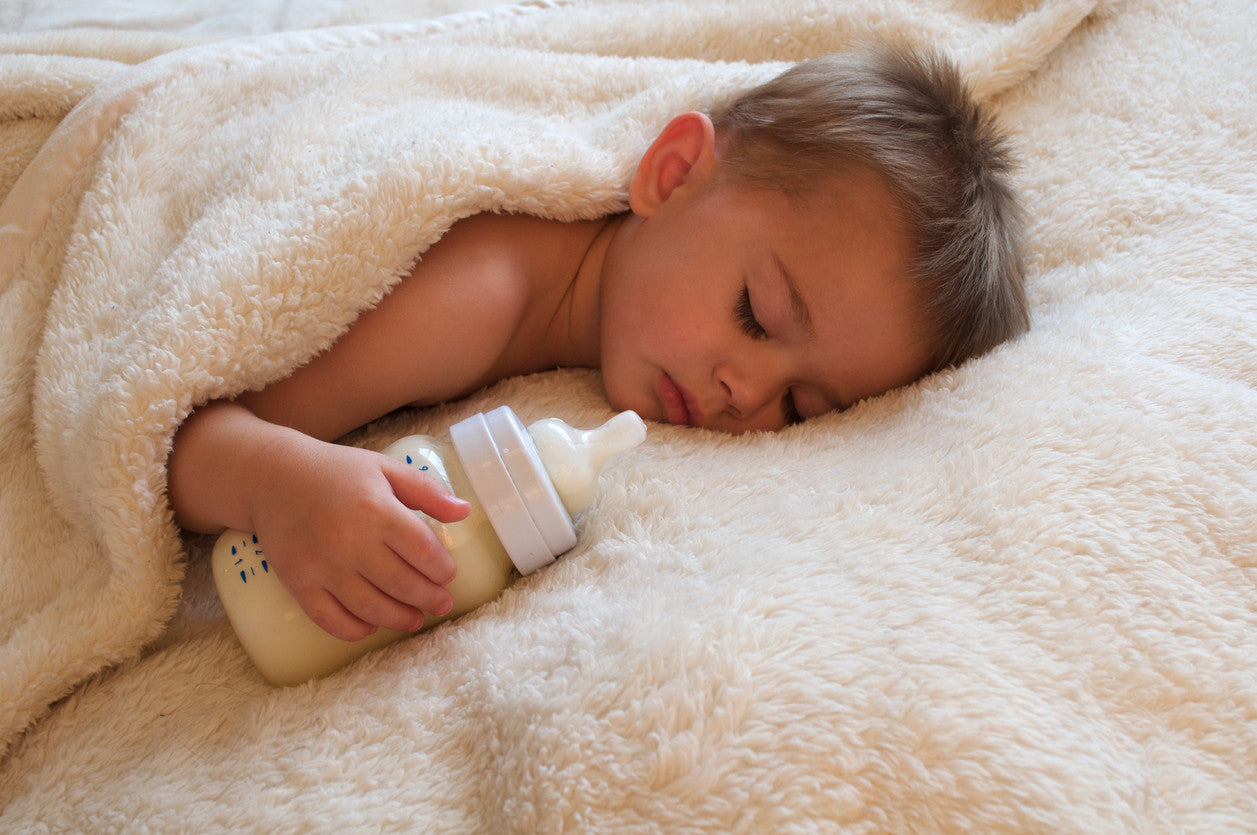If you’re like just about every other parent out there, you’re probably feeling at least a little sleep deprived.
It’s a challenge, particularly when you have a bed full of kids or dogs or cats or, in some cases all three, fighting for space and kneeing you in the back or sleeping on your face while you try to catch the necessary zzzz’s to face a new day.
Are you worried that it could be affecting your work and even your health?
Well, join the millions of others who are in exactly the same boat.
According to the CDC (Centers for Disease Control and Prevention), 50-70 million Americans have a sleep or wakefulness disorder and a recently published headline on the CDC website read “Insufficient Sleep is a Public Health Epidemic.” Epidemic? Whoa!
And What is Enough Sleep, Anyway?
A panel of medical professionals and experts brought together by The National Sleep Foundation agreed that, for healthy individuals with normal sleep, the appropriate sleep duration for:
- newborns is between 14 and 17 hours,
- infants between 12 and 15 hours,
- toddlers between 11 and 14 hours,
- preschoolers between 10 and 13 hours,
- school-aged children between 9 and 11 hours,
- teenagers 8 to 10 hours,
- 7 to 9 hours for young adults and adults, and
- 7 to 8 hours of sleep for older adults.
Quality or Quantity?
Of course, both are important! A blinding flash of the obvious, you say?
Sleep quality comes from a combination of phases:
- REM which consolidates learning, dumps unneeded memories and relaxes the mind
- Phases Two, Three and Four that restore the immune system and repair and rejuvenate the body.
We dip in and out of these phases during the night, normally in a series of 90 minute cycles.
It turns out that by quieting the mind before we hit the hay, the better our chances these cycles will be regular and accomplish all the restorative and rejuvenating benefits to mind and body that only sleep can give us.
Tip: For the first few months of Baby’s life, interrupted sleep is a given! A couple of hours at a stretch is about all you’ll be able to manage, so try grabbing a nap when Baby’s asleep.
Also, the less you stress about it and accept it as a given, the more readily your mind and your body will be able to cope.
How ‘Bout Your Mattress?
The Better Sleep Council in a 2008 survey reported that although we spend 33% of our lives sleeping (or trying to), fully 70% of respondents reported not getting the recommended 7.5 hours of sleep a night needed to perform at their best.
And those who did get 7-9 hours a night were more likely to be sleeping on a mattress one to four years old.
Actual Health and Performance Benefits
The Better Sleep Council reports that a medium firm, good quality mattress with the right support can:
- lead to a more active lifestyle, i.e. enhanced physical and mental performance
- improve mental attitude and alertness
- significantly improve back, shoulder and neck pain
- reduce related stress symptoms and behaviours
- improve the length and quality of a night’s sleep
Believe it or not, the average mattress is 10 years old and has yielded 25,000 hours of support! That’s a lot of time spent you've spent on the same mattress and even though manufacturers offer guarantees of up to 20 years, that’s just for the materials and not the structure or support.
What’s the answer? They recommend replacing your mattress after five to seven years with a new medium-firm, good quality mattress and to do it regularly.
And remember to replace your pillow after one year – the two go hand in hand!
So, think about what you’re sleeping on and not just how or where you’re doing it, okay?

4 Tips for a Better Sleep
Once you have the kids down for the night, try these few tips that could help make your life more restful:
- Develop a regular 5 to 10 minute routine that signals the body it’s time to sleep
- Keep a notebook handy and write down your “to-do’s” rather than lying there and thinking about them
- At least 20 minutes before bed, avoid bright screens – including computer, TV and phones that disrupt your circadian rhythm – and turn down the lights
- Avoid carbohydrates, including alcohol, fatty and/or spicy foods after 7:00pm
And to Wake Up?
- Don’t abuse the snooze button – it fragments sleep
- Expose yourself to light
- Look at your smart phone screen
- Drink water
- Listen to music with a faster beat
- Stretch your eyes by looking back and forth, up and down
Most of all? Don’t stress about your sleep, try the above and buenos noches!!



